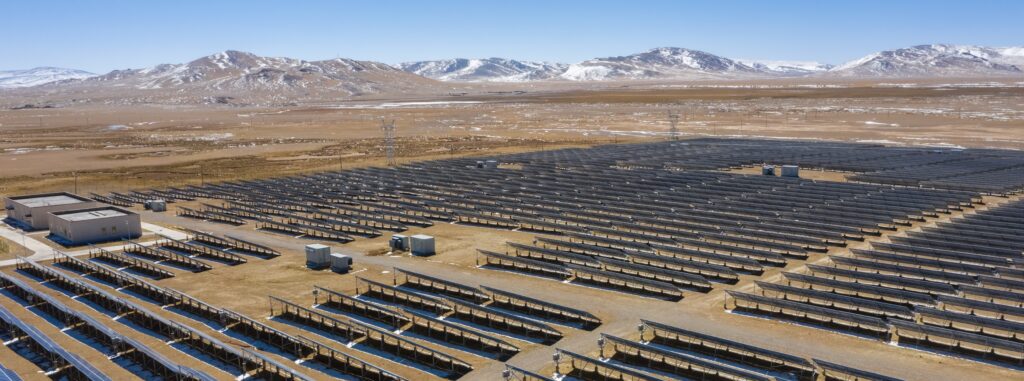The UK is working with the Government of the Kyrgyz Republic to help unlock foreign direct investment in renewable energy.
This UK-Kyrgyz Republic partnership will develop a flexible financial model that will support informed decision-making on sovereign guarantees for renewable energy projects.
The project aims to contribute to unlocking foreign direct investment and accelerate the scale-up of solar, wind and small hydropower projects.
The United Kingdom and the Kyrgyz Republic have launched a new partnership to strengthen the enabling environment for renewable energy investment. The project was formally introduced at a meeting in Bishkek, attended by the representatives from the Kyrgyz authorities as well as from the Foreign, Commonwealth and Development Office (FCDO)-funded Green Cities, Infrastructure and Energy Programme (GCIEP).
The project aims to support the Kyrgyz government in developing a flexible financial model that enables risk-informed decision-making on renewable energy investments. The model will help project future payment obligations and estimate the potential scale of financial guarantees under various renewable energy growth scenarios. Running from July to December 2025, the project will also include training for relevant government officials to ensure effective use of the model and promote ownership and sustainability beyond the project’s duration.

The Kyrgyz Republics’ electricity sector faces growing challenges. The electricity system depends heavily on ageing hydropower plants that are increasingly vulnerable to seasonal variation and climate change. As a result, the country has experienced rising winter electricity deficits, over 20% of its electricity supply was imported in 2024.
To address these issues, the Government of the Kyrgyz Republic aims to diversify the generation mix and increase the share of renewable electricity generation to at least 10% by 2027. With significant potential for solar, wind and small hydropower, and the opportunity to export electricity via the CASA-1000 project– the country is well-position to become one of the regional leaders in green energy.
However, investment is constrained by challenges in issuing government guarantees, as the fiscal impact is often difficult to estimate. This project will help relevant government entities to assess the fiscal implications of issuing sovereign guarantees and explore alternative de-risking mechanisms to attract private sector investment into the renewable energy sector.
Mr Nicholas Bowler, British Ambassador to the Kyrgyz Republic, said:
“The UK’s Centre of Expertise works with countries to accelerate sustainable urban development and resilient infrastructure. This collaboration is a strong example of how UK expertise can support the Kyrgyz Republic in improving the enabling environment and developing a pipeline of investable renewable energy projects.”
The UK Foreign, Commonwealth and Development Office (FCDO) has established a Centre of Expertise for Green Cities, Infrastructure and Energy (GCIE) to coordinate UK leadership in cities and infrastructure and respond to the impacts of climate change and poverty by accelerating the delivery of sustainable cities and resilient infrastructure. The Centre of Expertise is part of the British Investment Partnerships approach – the UK’s economic and development offer to partner countries. The Green Cities, Infrastructure and Energy Programme (GCIEP) is the main delivery mechanism of the GCIE Centre of Expertise. The programme is managed by a PwC-led Alliance, including Mott MacDonald, Adam Smith International, Engineers Against Poverty and MDY Legal.
Published
11/08/25
